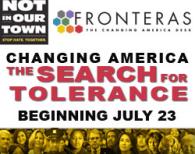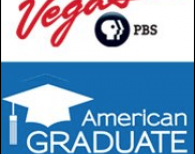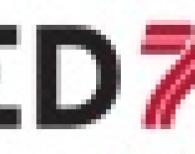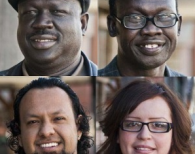This is the first in a five-part series published by our public media partneras at Fronteras. Listen to the accompanying radio piece.
By Jude Joffe-Block
PHOENIX — Gilbert, Ariz. is a bedroom community outside of Phoenix that has seen explosive population growth in recent decades. As it grew from a small, conservative farming town into a more diverse community, some notable tensions arose.
“In 1993, our detectives started to identify in the town of Gilbert a gang that called themselves White Power,” said police spokesman Sergeant Bill Balafas.
Six years later, a spin-off gang called the Devil Dogs emerged among football players at Highland High School.
“Their belief system, we learned, was for white people and anti everything else,” Balafas said. “So they were racists, but that didn't mean they didn't beat up white people, they just beat up everybody.”
public media

Tune into this original Not In Our Town programming from our public media partners at Fronteras.
We asked you this question in October 2011: Does your community make you feel safe and included, or scared and marginalized?
The Fronteras: Changing America Desk has joined forces with Not in Our Town documentary producers to determine how hate affects communities throughout the Southwest and what people like you are doing about it.
Tune in to hear these stories on KJZZ at 6:30 and 8:30 a.m. during Morning Edition

"A school where children don't feel safe is a school where children struggle to learn. It is a school where kids drop out, tune out, and get depressed. Not just violence but bullying, verbal harassment, substance abuse, cyber-bullying, and disruptive classrooms all interfere with a student's ability to learn."
—U.S. Secretary of Education Arne Duncan
Vegas PBS, the public television station that serves Southern Nevada, is taking the lead in linking efforts to address bullying as part of their effort to take action in the school dropout crisis as they are one of the first stations to launch the new nationwide PBS initiative "American Graduate—Let's Make it Happen."
Tina Past, Corporate Communications Director from Vegas PBS shares how they plan to show Not In Our Town: Class Actions as part of their long-term commitment to a community-wide effort to assure all students feel safe at school, achieve academic proficiency, and successfully graduate.

This Op-Ed originally appeared in WNET's MetroFocus. This story is part of a series related to tolerance, intolerance, discrimination, hate crimes and bullying in association with the Not In Our Town initiative and documentary.

A diverse audience of 150 from the Greater Salk Lake City community gathered at the Utah Museum of Contemporary Art for the Feb. 8 screening of Not In Our Town: Class Actions.
KUED partnered with the Inclusion Center for Community and Justice and the Eunice Shrive Kennedy Community of Caring at the University of Utah to host the free public screening, reception, and a panel discussion of the film. Class Actions debuted on PBS on Feb. 13 and explores how students and educators in three American Communities joined together to address hate and bullying in their schools.
National Community of Caring Center Associate Director Dr. David Parker shares his perspective on the screening:
This documentary is closely aligned with the goals of the National Community of Caring Center. I was honored to be the opening speaker for the screening in Salt Lake City, Utah for KUED. The screening gave an opportunity for a diverse representation of members of the community to come together to explore various aspects of the “climate” regarding acts of bullying and hate.

Not In Our Town: Light in the Darkness is not just a film, but the beginning of a conversation.
Here at The Working Group, we aim to produce films that serve a diverse audience with a shared goal: to make our communities safer and accepting of all. Not In Our Town: Light in the Darkness was not only broadcast nationally on PBS stations, but nearly 20 public media stations hosted relevant content and events in their respective markets. Nearly 30 national partners and allies—including the Department of Justice COPS, The National League of Cities, American Library Association, National Hispanic Media Coalition, and the Interfaith Alliance—shared the film with their constituencies. And at any hour of the day, our social media channels provided resources and space to connect around these important issues.
This community engagement success was made possible by support from PBS through the Diversity and Innovation Fund at the Corporation for Public Broadcasting. The $20 million fund—supported by tax-payers dollars—launched in 2010 to support PBS' National Program Service.

It is said that there is power in numbers, but when an increasing number of injustices were committed in Hayden Lake, Idaho, it was a small group of concerned citizens that stunted the growth of an American Nazi movement.
Three decades later, the story of the campaign for human rights that brought down the Aryan Nations--a once powerful organizing force that incorporated a white supremacist ideology with a frightening mix of anti-Semitism, racism, and Christianity--is now told in a one-hour documentary, The Color of Conscience. (To watch the full-length documentary, click here.)
Director Jay Krajic (left) and producer Marcia Franklin pose with two of the
founding members of the Kootenai County Task Force on Human relations,
